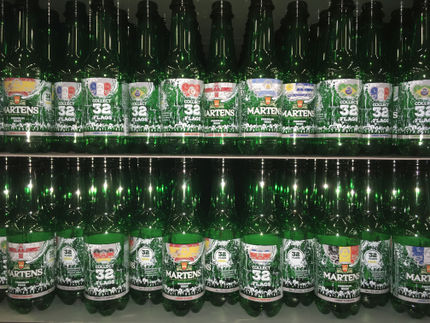The bitter hour of the brewers
Pour beer down the drain
Advertisement
Pouring beer down the drain. This bitter hour is approaching with each additional day of the repeatedly extended lockdown for numerous brewers, beverage retailers and restaurateurs in Germany. Because the time bomb of the best-before date is ticking relentlessly on the stored beer kegs. "This is the nightmare", says the head of the Düsseldorf house brewery "Füchschen", Peter König. About 2000 to 3000 liters of Altbier he will have to dispose of, which was bottled in October. "That hurts," König emphasizes. He finds it difficult to be in business, to bear the silence.

Photo by Pradnyal Gandhi on Unsplash

Photo by Pradnyal Gandhi on Unsplash


Especially brewers, who are focused on serving and festivals, have to destroy beer on a large scale, says the chief executive of the German Brewers Association, Holger Eichele.
According to him, millions are being dumped down the drain. Because pubs and restaurants are closed and no major events can take place, the lights are out in the breweries' draft beer bottling plants. And it gets worse - wholesalers bring back keg beer to be destroyed at the brewery: "This is happening all over Germany at the moment", says the editor of the industry magazine "Inside", Niklas Other.
Bitter hours for brewers, not only in this country. In Great Britain, almost 50 million liters of draft beer have to be destroyed because of closed pubs, as the British Beer and Pub Association calculated, according to the broadcaster BBC. There, too, the best-before date triggers transport back to the brewery and disposal. For many beers, this is as early as three to four months after delivery in the U.K., and as late as six to nine weeks for ales and some other beers. The larger portion was destroyed in the first lockdown in the spring, according to the report, and the smaller portion in the winter lockdown.
Shelf life as well as duration of the lockdown are factors that also play a role in Germany. According to the brewers' association, it is not possible to estimate exactly how large the destroyed quantity is. "Not all beer that has been returned so far had to be destroyed, and not all beer that was not drunk was brewed," Eichele says. Brewers, wholesalers and publicans were admittedly cautious before the second lockdown starting in November, explains industry expert Other. "Until the hoped-for end of the lockdown in the spring, there will still be several hundred thousand hectoliters in Germany."
In Germany, however, the second lockdown seems to be the bigger problem due to its longer duration. More and more products in gastronomy-specific containers such as draught beer exceeded the best-before date in the warehouses and thus became unsaleable, says board member Dirk Reinsberg of the Federal Association of German Beverage Wholesalers. The damage to wholesalers is growing from day to day. Currently, the quantities with the best-before date of February/March are "under fire". Should the lockdown continue, stocks would be added.
According to customs data, the returns to the breweries have not yet had an effect on the beer tax. According to the data, the total amount of beer returned to brewers' and wholesalers' tax warehouses did not increase in 2020. According to the data, 72 million hectolitres of taxed beer were offset by 0.95 million hectolitres of so-called return beer. This corresponds to a share of 1.3 percent. The year before, it was 1.15 million hectoliters, or 1.5 percent return beer. "The figures show, there has been no major change," said Florian Richter, spokesman for the General Directorate of Customs. Conclusions as to whether the beer was withdrawn due to the lockdown and whether it was bottled or kegged beer were not possible, he said.
Breweries have to pay beer tax. If beer is destroyed, this tax can be reclaimed.
According to its own statements, the large brewery Veltins had to destroy virtually no beer during the first, shorter lockdown. Now the company expects that it will be a few thousand liters.
With the extensions, the second lockdown had simply turned off the tap to restaurateurs. Across the industry, many thousands of barrels of beer would be returned to breweries from the restaurant trade half-full, nearly full or almost empty on an unprecedented scale.
"However, there has already been some learning. Beverage wholesalers and restaurateurs have not stashed as much beer in storage or in the cellar for a long time as was the case during the first lockdown," says managing director Volker Kuhl.
The Cologne Brewery Association also reports that the industry has learned from the first lockdown and has calculated sales volumes more cautiously. "The problem is the uncertainty of how long it will last," says managing director Christian Kerner. A roadmap, a clear perspective would be very important for brewers and restaurateurs alike.
It is particularly bitter, he says, that the lockdown is hitting the months with the highest sales for Kölsch. "Carnival as a factor, especially now in January and February, falls away completely. That is enormous," says Kerner./vd/DP/zb
Note: This article has been translated using a computer system without human intervention. LUMITOS offers these automatic translations to present a wider range of current news. Since this article has been translated with automatic translation, it is possible that it contains errors in vocabulary, syntax or grammar. The original article in German can be found here.






























































